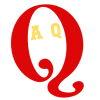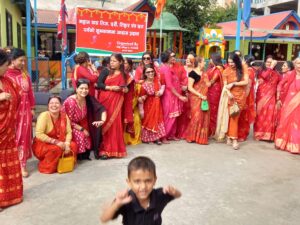Understanding the Loksewa Nepal Questions and Answers System
Overview of Loksewa Nepal
Loksewa Nepal, officially known as the Public Service Commission (PSC), is a governmental body responsible for recruiting civil servants in Nepal. Established to ensure a fair, transparent, and merit-based selection process, Loksewa conducts examinations for various positions within the public sector. The examination process is rigorous and highly competitive, aimed at selecting the most qualified candidates for government jobs.
Structure of Loksewa Examinations
The Loksewa examination process typically involves multiple stages, each designed to assess different skills and knowledge areas of the candidates:
Preliminary Exam: This is the first stage of the selection process. It consists of objective-type questions that test general knowledge and aptitude.
Main Exam: Candidates who pass the preliminary exam are eligible to appear for the main exam. This stage involves both objective and subjective questions covering a broader and deeper range of topics.
Interview: The final stage is the interview, where candidates are evaluated on their personality, communication skills, and suitability for the role.
Key Areas Covered in Loksewa Exams
Loksewa exams cover a wide range of topics to ensure that candidates have a well-rounded knowledge base and the skills required for public service. The main areas include:
General Knowledge: This section tests candidates on their awareness of national and international events, historical facts, geography, and cultural heritage.
Subject-Specific Knowledge: Depending on the position applied for, this section includes questions related to the specific field or department.
Current Affairs: Candidates are tested on recent events and developments, both within Nepal and globally.
Aptitude and Reasoning: This section assesses logical reasoning, analytical abilities, and problem-solving skills.
Language Proficiency: Proficiency in both Nepali and English is often tested, including grammar, comprehension, and writing skills.
Sample Questions and Answers
To give a better understanding of the types of questions that might be encountered in Loksewa exams, here are some sample questions and their answers:
General Knowledge:
Question: Who is known as the father of the nation in Nepal?
- Answer: King Prithvi Narayan Shah.
Question: What is the national flower of Nepal?
- Answer: Rhododendron (Lali Gurans).
Current Affairs:
Question: Who is the current President of Nepal? (As of 2024)
- Answer: Ram Chandra Poudel.
Question: What major agreement did Nepal sign with India in 2023?
- Answer: The energy cooperation agreement to enhance cross-border electricity trade.
Aptitude and Reasoning:
Question: If A is taller than B, and B is taller than C, who is the shortest?
- Answer: C.
Question: Find the next number in the series: 2, 6, 12, 20, ___.
- Answer: 30 (The series follows the pattern n^2 + n).
Language Proficiency:
Question: Translate the following Nepali sentence to English: “नेपाल हिमालको देश हो।”
- Answer: “Nepal is the country of mountains.”
Question: Correct the following sentence: “He don’t likes to play football.”
- Answer: “He doesn’t like to play football.”
Preparing for Loksewa Exams
Preparation for Loksewa exams requires a strategic approach, combining comprehensive study with regular practice. Here are some tips for effective preparation:
Understand the Syllabus: Familiarize yourself with the detailed syllabus for the specific exam you are preparing for.
Create a Study Plan: Develop a study schedule that covers all the topics and allows sufficient time for revision.
Use Quality Study Materials: Refer to recommended books, guides, and online resources that provide accurate and detailed information.
Practice with Past Papers: Solve previous years’ question papers to get an idea of the exam pattern and difficulty level.
Take Mock Tests: Regular mock tests help in assessing your preparation and improving time management skills.
Stay Updated: Keep yourself updated with current affairs by reading newspapers, watching news, and following reliable news portals.
Benefits of the Questions and Answers System
The questions and answers system in Loksewa exams is designed to evaluate candidates comprehensively, ensuring they possess the necessary knowledge, skills, and aptitude for public service. Some benefits include:
Fair Assessment: The structured format ensures a fair evaluation of all candidates.
Skill Enhancement: The variety of questions helps in developing a range of skills, from analytical thinking to language proficiency.
Merit-Based Selection: The system promotes meritocracy, ensuring that the most capable individuals are selected for public service roles.
Transparent Process: The clear and systematic examination process enhances transparency and trust in the recruitment system.
Conclusion
The Loksewa Nepal questions and answers system plays a crucial role in the recruitment of competent civil servants. By understanding the structure of the exams and preparing effectively, candidates can enhance their chances of success. The system’s focus on a wide range of knowledge areas and skills ensures that those selected are well-equipped to contribute to the public sector and serve the nation effectively.
4o





